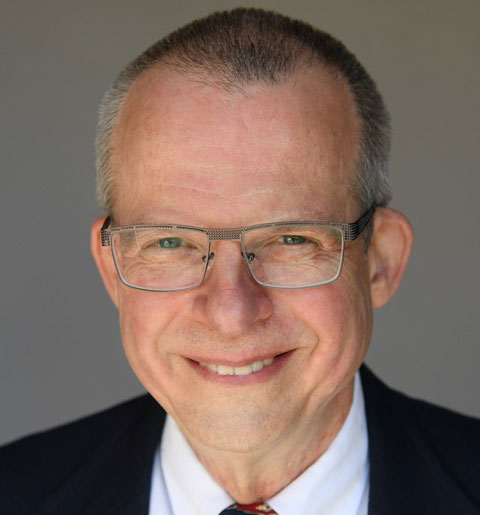Schizophrenia Treatment Program
Schizophrenia is a severe mental health condition that can cause disabling symptoms such as hallucinations, delusions, and disorganized thinking. With appropriate treatment, individuals with schizophrenia can live fulfilling lives despite having this condition.
Our mental health treatment center in Washington offers dual diagnosis treatment for schizophrenia and addiction for you or a loved one who needs professional help.

What is Schizophrenia?
Schizophrenia is a mental disorder that impairs an individual’s ability to think, manage emotions, make decisions, and relate to others. It affects about one percent of the global population and can cause difficulties in all aspects of life.
The symptoms of schizophrenia vary from person to person but typically involve delusions or hallucinations. People living with schizophrenia often struggle with social isolation, poverty, and other related problems.
The exact cause of schizophrenia is unknown, but it is thought to be caused by a combination of genetic factors, environmental stressors such as trauma or drug use, and biochemical abnormalities in the brain.
To diagnose someone with schizophrenia, clinicians will look for two or more primary symptoms such as hallucinations or delusions that last for at least six months.

Risk Factors for Schizophrenia
Schizophrenia is a chronic mental health disorder that can significantly affect a person’s thinking, behavior, and emotions. While the exact cause of schizophrenia is unknown, it has been linked to both genetic and environmental factors. Risk factors for schizophrenia include having a family history of the condition, being exposed to certain environmental toxins during childhood, and experiencing extreme stress or trauma.
Genetics is believed to play an important role in the development of schizophrenia. Research has shown that if one parent has been diagnosed with schizophrenia, their child’s risk of developing the condition increases to 10%. If both parents have been diagnosed with the condition, their child’s risk increases to 40%. Additionally, people who have a close relative with schizophrenia (such as a sibling or aunt/uncle) are also at increased risk.
Environmental exposures may also increase the risk of developing schizophrenia. Exposure to certain toxins such as lead and air pollution during childhood can increase one’s chances of developing the disorder later in life. Additionally, research studies suggest that people born in winter are more likely to develop schizophrenia than those born in other seasons. This could be due to environmental factors such as viruses or lack of exposure to sunlight during pregnancy.
Stress and Trauma
Experiencing extreme stress or trauma can also be a risk factor for schizophrenia. Individuals who experience significant amounts of stress during childhood (such as abuse or neglect) are more likely to show signs of psychosis during adulthood than those without such a history of trauma.
Additionally, individuals who experience post-traumatic stress disorder (PTSD) after experiencing traumatic events may be at increased risk for developing psychotic disorders like schizophrenia later on in life.
It is important for individuals who think they may be at high risk for this disorder to seek help from our treatment center for schizophrenia so they can receive appropriate treatment and care.
Causes of Schizophrenia
This mental illness tends to run in families, suggesting a genetic link. People who have a close relative suffering from the disorder are more likely to develop the condition.
Certain brain chemicals, including neurotransmitters like dopamine and glutamate, are involved in the development. Imbalances in these chemicals, or problems in the way they interact, may contribute to the disorder.
Research has shown that people with schizophrenia often have differences in the structure of their brains, including smaller amounts of grey matter and certain other abnormalities.
Certain environmental factors may increase the risk of developing the disorder, including exposure to viruses or malnutrition before birth, complications during birth, and psychosocial factors, such as stressful life events or drug abuse.
While not a cause in itself, certain psychological factors can make a person more likely to develop schizophrenia. This includes a history of traumatic or abusive experiences.
It’s important to note that while these factors can increase the risk, they do not guarantee that someone will develop schizophrenia. Many people have one or more risk factors but do not develop the disorder. Similarly, a person can develop this disorder without any obvious risk factors.
The onset of schizophrenia typically occurs in late adolescence to early adulthood. Men tend to show symptoms earlier than women. Early signs can be vague and hardly noticeable, but as the disease progresses, symptoms become more severe and disruptive.
Can Drug Use Schizophrenia?
Substance abuse can be a contributing factor to the development of schizophrenia in some cases. It has been suggested that drug use can lead to chemical imbalances in the brain and other physiological changes that could trigger the onset of schizophrenia.
Drug use can also cause changes in behavior, which can further exacerbate existing symptoms or even trigger new ones. For example, people who take hallucinogenic drugs such as LSD may experience hallucinations similar to those seen with schizophrenia. As a result, it is believed that drug use can contribute to the development of schizophrenia in some individuals.
Use of certain drugs, including cannabis, amphetamines, cocaine, and LSD can increase the risk of developing schizophrenia. Additionally, heavy alcohol use has been linked to an increased risk for psychosis and may lead to symptoms similar to those seen in schizophrenia.
Schizophrenia and Addiction
Schizophrenia and addiction often have a complicated, interconnected relationship. People living with schizophrenia may turn to drug or alcohol misuse as a way to cope with their symptoms, often leading to substance abuse and an increase in symptoms.
Substance abuse can also lead to increased psychotic symptoms such as paranoia, delusions, and hallucinations. In addition, people with schizophrenia are more likely than the general population to become dependent on substances due to underlying biological factors, making it even more difficult for these individuals to break free of the cycle of addiction.
Psychosocial interventions such as cognitive-behavioral therapy (CBT) and family counseling are key components in helping individuals manage their symptoms while recovering from substance use disorder (SUD). These interventions emphasize developing healthy coping skills, managing stressors, and improving communication within families.
Medication management can be used in conjunction with psychosocial interventions to reduce cravings and prevent relapse.
Signs and Symptoms of Schizophrenia
Schizophrenia is often characterized by a range of behaviors that can be categorized into positive and negative groups.
Positive symptoms are abnormal experiences or behaviors that are not usually observed in healthy individuals. These include:
- Hallucinations: These involve perceiving things that aren’t there, such as hearing voices, seeing things, or smelling things others can’t perceive.
- Delusions: These are firmly held beliefs that are not based in reality. They might involve feelings of being persecuted, having exceptional abilities, or being controlled by external forces.
- Disorganized thinking (speech): This involves difficulty organizing thoughts, making it hard to communicate effectively. Speech may be incoherent or difficult to follow.
- Abnormal motor behavior: This can be shown in several ways, from childlike silliness to unpredictable agitation. Behavior isn’t focused on a goal, so it’s hard to perform normal day-to-day tasks.
Negative symptoms refer to reductions in normal emotional and behavioral states. These include:
- Reduced emotional expression: This includes reduced eye contact, facial expressions, and tone of voice.
- Reduction in feelings of pleasure: This could involve a lack of interest in everyday activities.
- Difficulty beginning and sustaining activities: Individuals may struggle to initiate and maintain self-directed activity.
- Neglect of personal hygiene: People with schizophrenia may neglect basic hygiene and need reminders to perform tasks related to daily functioning.
- Cognitive symptoms involve problems with thought processes. These symptoms may include poor executive functioning, trouble focusing or paying attention, and problems with working memory.
Behavior related to psychotic disorders can be severe and make daily life extremely difficult. People suffering from this illness struggle greatly to perform simple actions that are necessary to work or attend school. This is often what leads people to seek out ways to self-medicate their illness.
Types of Schizophrenia and Psychotic Disorders
There are several types of schizophrenia and related psychotic disorders. A unique set of behaviors characterizes each type, but they all share the core features of psychosis – a loss of contact with reality.
This type of schizophrenia is characterized by delusions and often involves feelings of paranoia and suspicion. People with this type may experience hallucinations, disorganized thinking, and behavior.
This is the most severe type of schizophrenia, characterized by disorganized behavior that interferes with daily functioning, as well as incoherent speech and disorganized thought patterns. People with this subtype may experience difficulty expressing emotions or even recognizing them in others.
This type of schizophrenia is marked by a profound lack of movement or activity, which can range from physical immobility to extreme agitation or excitement. People with this condition may also display peculiar behaviors such as repeating what other people say or maintaining a rigid posture for long periods.
This form is associated with fewer symptoms than the other types but still includes some features such as social withdrawal and reduced emotional expression. The person may still experience some mild delusions or hallucinations, but they are usually not severe enough to interfere significantly with daily life activities.
This diagnosis is given when the individual has two or more symptoms from different subtypes but does not meet the full criteria for any one type specifically.
Schizoaffective disorder is characterized by common behaviors of the illness along with mood disorder symptoms like depression or mania.
Brief psychotic disorder involves sudden onset of psychotic symptoms that last for at least a day but last less than a month, followed by a return to normal functioning.
Treatment for Schizophrenia and Addiction
Our comprehensive treatment center for schizophrenia is tailored to the unique needs of each client. This program helps individuals learn healthy coping mechanisms that can improve their overall quality of life. Although there is no direct cure for schizophrenia, our treatment center for schizophrenia can help you live a fulfilling life even with this condition.
Our Partial Hospitalization Program (PHP) includes therapy, support groups, and strict medication adherence. Individuals typically attend treatment for up to 8 hours a day, 5 days a week. In the evenings they return home. This program is also ideal for people suffering from dual diagnosis.
Intensive outpatient treatment is similar to a PHP but patients do attend treatment for as long. Typically they attend treatment for up to 5 hours a day, 3-5 days a week. This can be a good choice for someone who needs to work or attend school as well as needing a comprehensive treatment plan.
Outpatient treatment is the most flexible form of rehabilitation at our treatment center for schizophrenia. This is because people can attend therapy on their schedule. This is not ideal for someone dealing with serious issues related to schizophrenia or addiction. However, this program works well for people stepping down from an IOP or PHP
At our dual diagnosis treatment center in WA, some of our clients deal with issues like schizophrenia while also struggling with an alcohol use disorder. This is a highly effective treatment that addresses both disorders simultaneously.
Individual therapy, group therapy, and family therapy are typically part of treatment just as they are in other forms of care. The time and length of treatment depend on the person and their symptoms.
- Antipsychotics: Antipsychotic medication is often used to control hallucinations, delusions, and disorganized thinking associated with the illness. They work by affecting the brain’s neurotransmitters, especially dopamine.
- Typical antipsychotics: These include medications like haloperidol (Haldol), chlorpromazine (Thorazine), and fluphenazine (Prolixin).
- Atypical antipsychotics: These include aripiprazole (Abilify), clozapine (Clozaril), olanzapine (Zyprexa), risperidone (Risperdal), and quetiapine (Seroquel).
- Mood Stabilizers: Sometimes, mood stabilizers such as lithium (Lithobid) may be used to help manage symptoms or mood swings of bipolar disorder that can co-occur with schizophrenia.
- Antidepressants: Antidepressants might be used to treat depression, which co-occurs with this disorder. Selective serotonin reuptake inhibitors (SSRIs) and serotonin and norepinephrine reuptake inhibitors (SNRIs) are often used.
- Anti-anxiety medications: Also known as benzodiazepines, these drugs can help with anxiety and agitation. They are usually used for short-term treatment.Medication-assisted treatment (MAT) is a component of our treatment center for schizophrenia that combines medication with psychological therapies, social support, and lifestyle changes. Medication used to treat schizophrenia may include
It’s important to note that while these medications can control symptoms, they do not cure schizophrenia. Ongoing treatment is usually necessary to manage the condition effectively.
Therapy services for schizophrenia can involve a variety of techniques, including
Cognitive behavioral therapy (CBT) helps people with schizophrenia learn how to recognize irrational beliefs and thoughts and develop coping strategies to manage symptoms and reduce the risk of relapse.
Family therapy is designed to help families support their relative who has schizophrenia by teaching them about the illness, helping them identify warning signs of relapse and providing support.
Group therapy involves talking with people who have similar experiences to learn from each other and build a supportive network. In addition to these therapies, patients with schizophrenia need to have access to medication management and other support to help manage their illness.
The choice of therapy can depend on the individual’s specific symptoms, overall health, tolerance for specific medications or therapies, and personal preference. A healthcare provider will be able to guide appropriate treatment choices based on a comprehensive evaluation.

Find Schizophrenia and Addiction Treatment in Washington at Bayview Recovery
At Bayview Recovery, our treatment center for schizophrenia provides top-of-the-line care and support to those in need of mental health treatment. We understand how difficult it can be to battle mental illness, and we want to make recovery as easy as possible for you. Our facility is designed to help clients through recovery in a safe and accepting environment.
Don’t hesitate to contact us if you or someone you love is looking for help with schizophrenia treatment in Washington. We can help you get started on the path to healing today!

“The staff at the center has been remarkable in their care for our loved one. Tuni was with us the whole way as we tried to get this person into treatment. They continue to assist us as the process continues. Great work!”
Ray O
“I have been trying to get sober the past 3 years and I have been to treatment 5 times. Bayview Recovery was my 6th time. They helped me get to 142 days sober! I was a handful hot mess when I got there but the team never gave up on me. They work with families and they truly care about them too. Bayview house’s are clean and comfortable and the staff is amazing. They plan for fun events weekly and they want you to have fun. If your looking for something different call them it will save your LIFE!”
Cindy J
“Bayview is dedicated to providing clients the healthiest environment to develop a solid foundation in their recovery. The therapists and medical team are devoted to ensure clients have the best individualized care. I highly recommend Bayview for anyone seeking a highly professional treatment program. The care and compassion given to clients is remarkable.”
Robin M
“This is a fantastic facility with outstanding staff. If you or a loved one is struggling this is a great program to start the journey of recovery and get life long skills and relationships to begin a new life!”
Garrett T
“Just picked up our daughter after 90 days at Bayview Recovery. Loved the staff and facility, do not know what the future holds ???????? but while at Bayview , always felt informed. Highly recommend, incredibly helpful especially at the very beginning when we were so helpless and needed help the most – God Bless.”
Rosie S
Take a Look at Our Blogs
Despite their seemingly harmless appearance and widespread popularity, the dangers…
Have you noticed your partner or loved one's drinking habits…
Dave Cundiff, MD, MPH is an experienced leader in the field of Substance Use Disorder treatment. He works with patients suffering from Substance Use Disorder to evaluate their medication needs and prescribe treatments accordingly. In addition, he regularly participates in all-staff debriefing sessions involving peers, nurses, and other prescribers. He also reviews and advises on policies, procedures, and techniques for treating substance use disorder.








